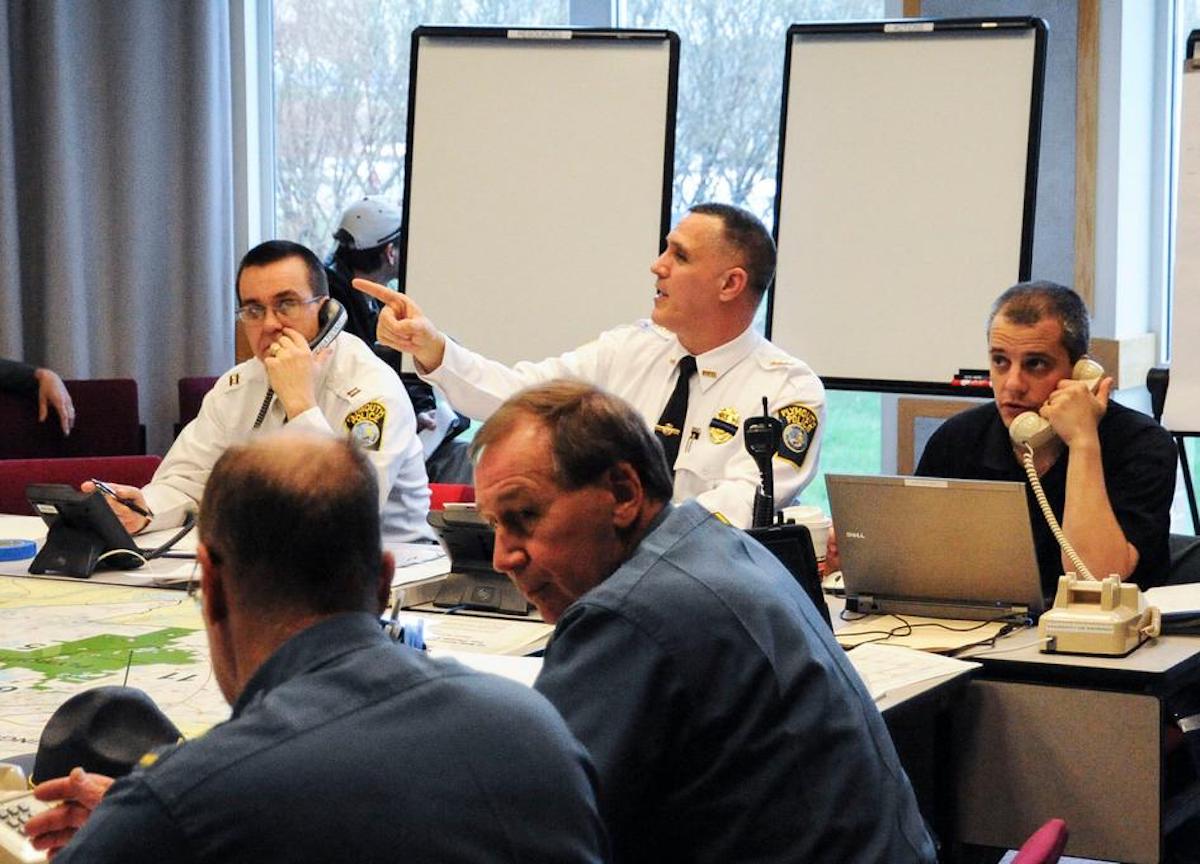No community can prepare for every possible disaster, but those who work in emergency management and disaster preparedness know that a bit of planning can go a long way. When it comes to protecting our nation’s communities against both the known and the unknown, the training and education of community leaders may be the most vital strategy of them all. Having a comprehensive, modern, and coordinated approach to disaster planning can save resources and lives.
Below, Captain Tiffany Danko, lecturer for Northeastern University’s Master’s in Security and Intelligence Studies program, shares four ways today’s homeland security professionals are proactively addressing risks to protect and serve their communities in times of crisis.
Strategy #1—Examine Past Disasters
Professionals in emergency management understand that there are always opportunities to learn and improve on their present knowledge. Part of protecting the future of our nation’s communities involves taking a long, hard look at what went well (and what didn’t go well) in the past. Captain Danko explains how examining previous disasters helps move leaders forward in their understanding of what may work better when the next disaster strikes:
“In [Northeastern’s graduate security] program, for example, we will look at past cases of wildfires and hurricanes, comparing the response of Hurricane Katrina versus the response of Hurricane Harvey. Both were very extensive flooding events in major metropolitan areas but the level of success of the two response efforts was very different. We look at why: What’s unique? What changed in policy? What changed in agencies? What changed in the way the response was organized? What was different locally? At a state-level and federally?”
Danko says leaders should make a habit of asking themselves these types of questions about past disasters to help prepare for future ones.
Strategy #2—Become Familiar with Emergency Processes and Policies
There’s much more to emergency management than simply responding to a crisis. It takes years of training to know what the proper role a leader should take in an emergency and how response and recovery operations should fall into place. Captain Danko stresses that one of the primary goals of the MA in Security and Intelligence Studies program is to ensure graduates know emergency management rules and workflows inside and out.
“It’s important to make sure that all of our students are familiar with the policy and processes behind what constitutes effective homeland security and emergency management. We have laws, and even entire programs, that go into how emergency management logistics work and how we respond. Whether our students will be responding to a natural or manmade disaster, we want to make sure that they will learn these critical policies and procedures.”
Another way that communities can mitigate damage, bolster their protections, and get on their feet quickly after a major disaster is to be aware of all the resources available to them. In some cases, smaller communities may be unaware of programs they can utilize or agencies they can partner with to help with emergency relief. Working knowledge of current policies and procedures will acquaint leaders with every available resource at their disposal.
Strategy #3—Get Hands-On Practice
Captain Danko says that while classroom time can play a vital role in understanding emergency services procedure, there is no substitution for experiential, hands-on learning. She emphasizes that students are best prepared for the uncertainty that disasters can bring when they have the opportunity to work on real-world problems as part of their graduate program experience.
“When we talk about continuity of operations,” she shares, “we don’t just talk about how an agency or organization can or should go about it. We make an actual continuity of operations plan for a specific agency or organization, and then experience how that works by looking in-depth into the problem. We take that real-world policy and apply it.”
Captain Danko also emphasizes that critical thinking skills are necessary for successful emergency management and homeland security professionals. While these are desired traits for any senior manager or leader, the stakes are much higher for students graduating from this particular program. Without the ability to quickly asses and reason in under the most stressful conditions, emergency services professionals cannot be effective in protecting the people they serve. Practicing critical thinking skills in the classroom and through experiential learning exercises prepares graduates to think on their feet when they encounter challenges through their roles in the community.
Strategy #4—Plan, and Plan Again
In the end, there’s no way to prevent some disasters from happening. Knowing this, however, is an advantage. Emergency management leaders achieve the best outcomes when they are realistic about all potential risks.
“One of the best ways we can make our communities resilient is through planning,” Captain Danko reminds us. “Take a hard look at what the risks are for your community, set up plans to mitigate those risks, and respond and recover when necessary.”
Successful disaster mitigation plans don’t happen overnight, she says. But programs like the MA in Homeland Security are designed to prepare students to understand and evaluate risk so that they can one day effectively protect their communities—wherever they may end up.
Whether you’re looking to enhance an already-established career in homeland security, build upon your skills as the captain of your local firehouse, or break into the field of emergency management for the first time, a degree in homeland security could be the best way to expand your skills and the gain real-world experience needed to face the risks you may encounter.
Explore our MA in Security and Intelligence Studies program to learn how you can gain the skills you need to keep your community safe






Related Articles
How You Can Use Geographic Information Technology
5 Reasons to Study International Relations and Diplomacy
Master’s Lands Alum Role with the Dept. of Homeland Security